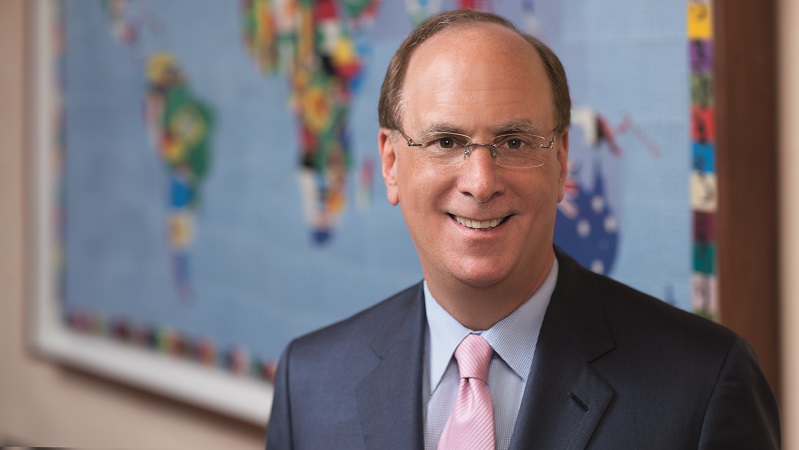Blackrock chief executive Larry Fink has flagged exchange traded funds, illiquid alternatives and technology as the $6.8trn asset manager’s growth drivers this decade, but the firm has reportedly put a freeze on global hiring as the Covid-19 pandemic continues to affect markets.
In his annual letter to shareholders, Fink said never in his 44 years in finance had he experienced anything like the coronavirus outbreak currently tearing through financial markets.
“The outbreak has impacted financial markets with a swiftness and ferocity normally seen only in a classic financial crisis,” he said. “In a matter of weeks, global equity benchmarks fell from record highs into a bear market.”
Fink said Covid-19 has sparked a re-evaluation of many assumptions about the global economy, such as the infatuation with just-in-time supply chains or reliance on international air travel.
“When we exit this crisis, the world will be different. Investors’ psychology will change. Business will change. Consumption will change. And we will be more deeply reliant on our families and each other to stay safe.”
Blackrock freezes new hires
It comes after Reuters reported last week that Blackrock has put a freeze on global hiring for “a few weeks” amid the coronavirus pandemic. A spokesperson confirmed to the publication the firm had “paused making new offers”.
But in his note Fink said the economy will recover steadily because of swift central bank action in credit markets and aggressive fiscal stimulus from governments.
He said: “The speed and the shape of these policies are deeply influenced by the world’s experience during the global financial crisis in 2008. I also believe their actions are likely to be more effective and work more quickly since they are not fighting against the same structural challenges as they were a decade ago.”
Fixed income ETFs ‘transforming bond market’
One area of growth Fink highlighted was fixed income ETFs which he described as “transforming and modernising the $100trn bond market”. He said the benefit of fixed income ETFs “becomes amplified in times of market stress”.
“When liquidity disappears in the underlying bond markets, the transparency of an ETF allows clients to price the underlying bonds. And the ability for buyers and sellers of the ETF to meet directly on exchange, and trade in secondary markets creates an additional layer of liquidity for clients.
“That capability is why ETFs – both in equity and fixed income – are fast becoming investors’ go-to vehicles for quickly taking off risk exposure in times of market volatility.”
Alpha is attainable through illiquid alternatives
On the active management side Fink said alpha remains attainable, but the process for generating it is changing which has led to a focus on illiquid alternatives.
Fink said: “Low yields, a shortage of long-duration instruments and a view that alpha is more attainable in private markets is driving client demand for illiquid alternatives, particularly from those who need to match long liabilities.
“Bigger allocations to private markets are a good thing for clients looking for higher, uncorrelated returns and for asset managers who can deliver on those expectations.”
Above all however, Fink said the “biggest” change for asset managers is how they use technology, adding this needs to be as good as any tech firm, particularly given the recent speed with which markets have moved.
“It has to be part of who they are,” he added. “Asset managers will have to fully integrate technology to connect with clients, generate investment insights, create operational efficiencies and unify their organisation on a single platform. And volatility of the markets, and the speed with which they have moved these past few weeks, reinforces once again how essential technology is to managing risk today.”









